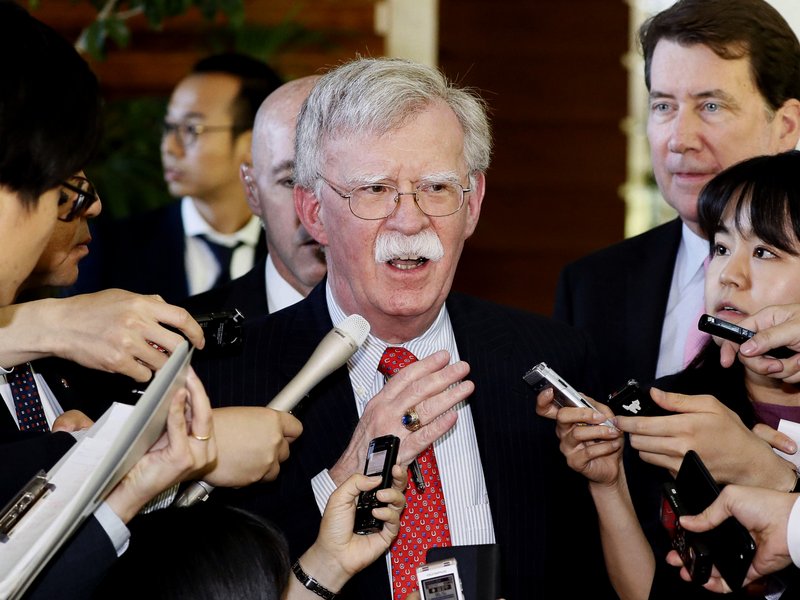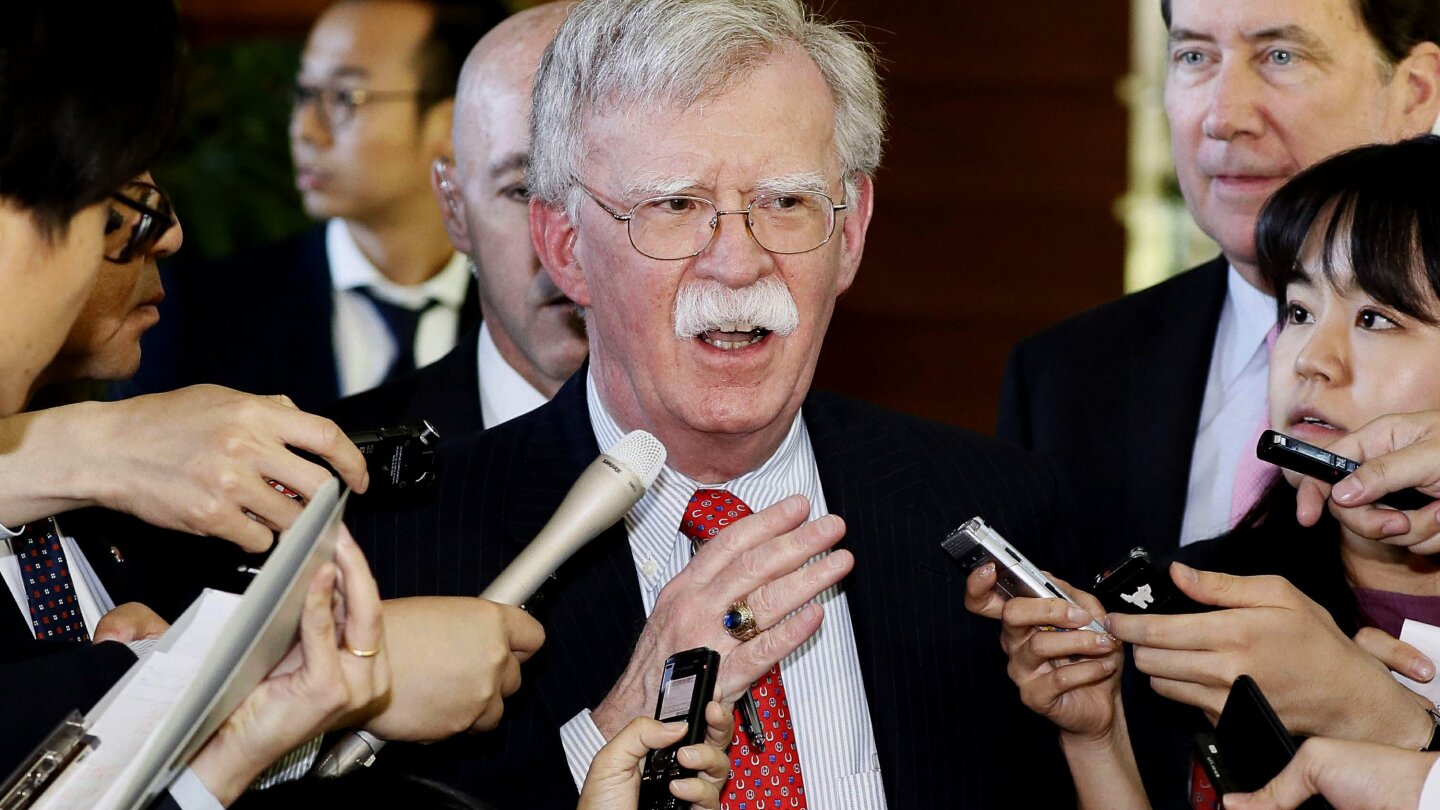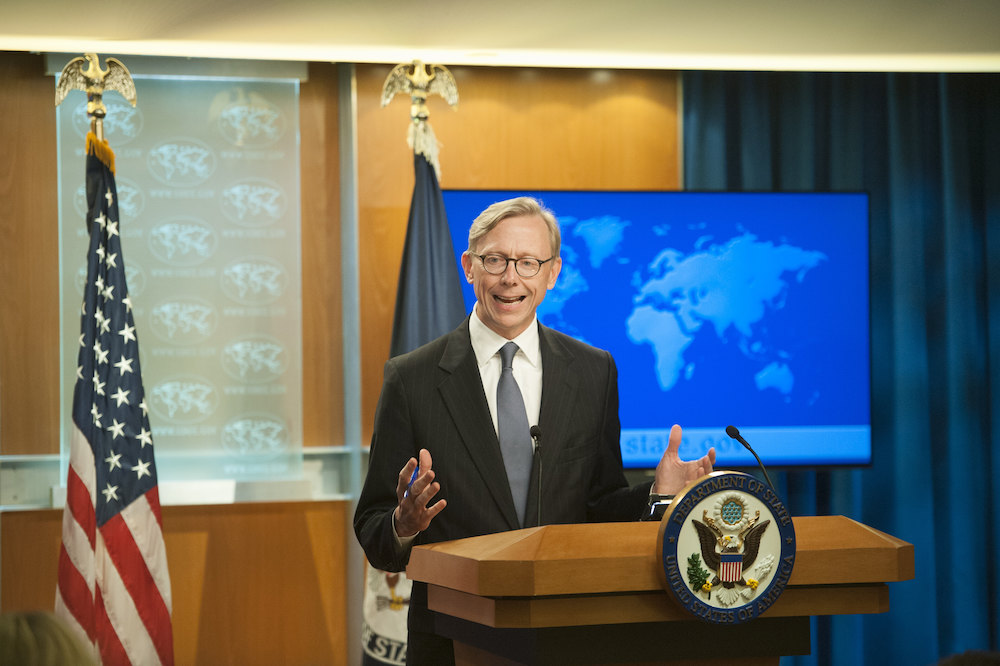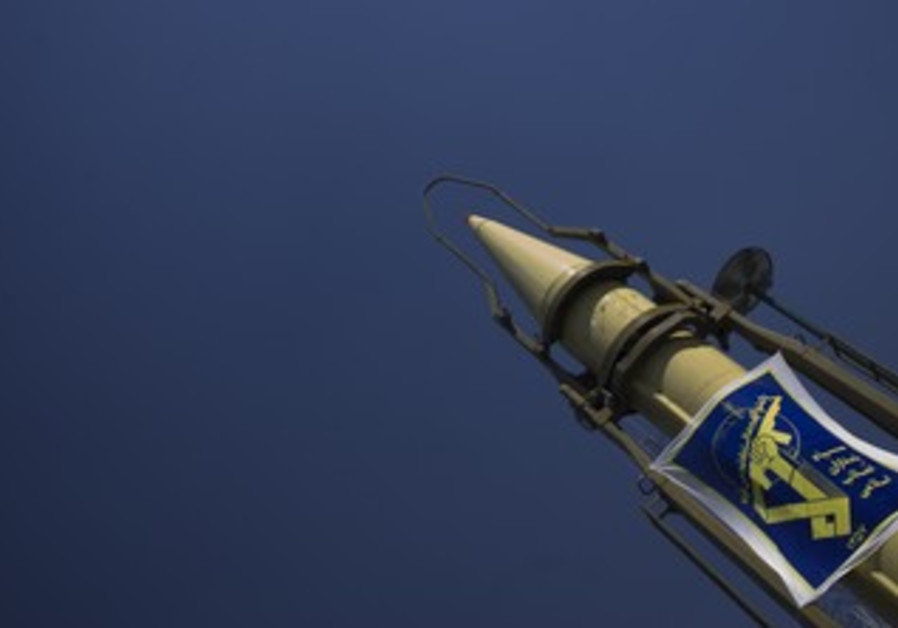The Latest: Iran official says some in US pushing for war
15 minutes ago
29 May 2019

FILE - In this Friday, May 24, 2019, file photo, U.S. National Security Adviser John Bolton is surrounded by reporters at the prime minister's official residence in Tokyo, Japan. North Korea on Monday, May 27, 2019, has called U.S. National Security Adviser Bolton a "war monger" and "defective human product" after he called the North's recent tests of short-range missile a violation of U.N. Security Council resolutions. (Yohei Kanasashi/Kyodo News via AP, File)
ABU DHABI, United Arab Emirates (AP) — The Latest on developments in the Persian Gulf region and elsewhere in the Mideast amid heightened tensions between the U.S. and Iran (all times local):
5:25 p.m.
Iran’s deputy foreign minister is saying that some “elements” in the Trump administration are pushing the country into a war that would be “catastrophic” for the region.
The semi-official ISNA news agency quotes Abbas Araghchi as saying, “We are aware that evident elements are trying to put America into a war with Iran for their own goals.” He did not elaborate on who those elements are.
Araghchi said there have been no talks and won’t be any talks with the U.S., either directly or indirectly.
Araghchi added that Iran is ready to talk with any Persian Gulf state to reduce tensions and establish a balanced and constructive relationship.
Tensions between Washington and Tehran soared recently over America deploying an aircraft carrier and B-52 bombers to the Persian Gulf over a still-unexplained threat it perceives from Tehran.
__
4:25 p.m.
Iran’s foreign ministry is rejecting accusations by President Donald Trump’s national security adviser that Tehran was behind alleged sabotage of oil tankers off the coast of the United Arab Emirates.
John Bolton, long a hawk on Iran, said during a visit to the UAE on Wednesday that the sabotage came from naval mines placed “almost certainly by Iran.” He declined to offer any evidence to support his comments.
In Tehran, the foreign ministry spokesman Abbas Mousavi said that it was a “ridiculous accusation” but not a surprise and “not a strange thing” since it came from someone with a long record of anti-Iran stance.
Bolton’s visit to the UAE comes amid heightened tensions across the Persian Gulf.
___
2:30 p.m.
Iranian President Hassan Rouhani says the “road is not closed” if the U.S. wants negotiations with Iran and returns to the nuclear deal between Tehran and world powers.
Rouhani spoke during a Cabinet meeting on Wednesday.
He did not explicitly name the United States but referred to Washington by saying: “The road is not closed for them, whenever they put aside their cruel sanctions and return to the negotiation table that they left.”
Rouhani’s website also quoted him as saying that if the U.S. chooses “another way and returns to justice and law, the Iranian nation will keep the road open to you.”
The U.S. last year pulled out of the 2015 nuclear deal between Iran and world powers and re-imposed sanctions on Tehran.
___
1:30 p.m.
Iran’s official news agency says Russia’s deputy foreign minister is visiting Tehran to discuss the increasingly unraveling 2015 nuclear deal between Iran and world powers.
IRNA says Sergey Ryabkov met his Iranian counterpart, Abbas Araghchi, on Wednesday. It says they discussed the deal as well as bilateral ties, regional and international issues.
The visit comes as tensions have escalated in the Persian Gulf region amid a crisis between Washington and Iran. Last year, the Trump administration pulled America out of the nuclear deal and re-imposed sanctions on Iran targeting the country’s oil sector.
America has deployed an aircraft carrier and B-52 bombers to the region over the escalation. Countries such as Iraq and Japan have offered to mediate in the crisis. Iran says it will wait and monitor the developments in the region before deciding about the offer.
___
10:05 a.m.
President Donald Trump’s national security adviser says there was a failed attack recently on the Saudi oil-port city of Yanbu.
The comments by John Bolton on Wednesday came during a briefing to journalists in the Emirati capital of Abu Dhabi.
Bolton’s remarks mark the first time anyone has alleged that Yanbu was targeted during the ongoing Persian Gulf crisis.
Yanbu is the terminus, the final point, of Saudi Arabia’s east-west pipeline. That pipeline was recently targeted by Yemen’s Houthi rebels in a coordinated drone attack.
Bolton said he suspected Iran was behind the failed attack, but did not elaborate.
Officials in Saudi Arabia could not be immediately reached for comment.
___
9:55 a.m.
The top security adviser to President Donald Trump says that there’s “no reason” for Iran to breach the terms of its 2015 nuclear deal with world powers other than to seek atomic weapons.
John Bolton made the comment on Wednesday while speaking to journalists in Abu Dhabi ahead of meetings he planned with top Emirati officials.
Bolton said: “There’s no reason for them to do . it unless it is to reduce the breakout time to nuclear weapons.”
Bolton also claims that four oil tankers Emirati officials alleged were sabotaged off the coast of Fujairah were attacked “almost certainly by Iran.” He declined to offer any evidence to support his comments.
Bolton dismissed the idea there was any difference between his positions and Trump, saying: “I am the national security adviser, not the national security decision-maker.”
___
8:55 a.m.
President Donald Trump’s national security adviser, a longtime hawk on Iran, is visiting the United Arab Emirates amid heightened tensions across the Persian Gulf.
John Bolton tweeted he had arrived in the Emirates for meetings Wednesday “to discuss important and timely regional security matters.”
America recently deployed an aircraft carrier and B-52 bombers to the Persian Gulf over a still-unexplained threat it perceives from Tehran. The U.S. also pulled nonessential diplomats out of Iraq and sent hundreds more troops to the region.
Meanwhile, Emirati officials allege four ships off their coast were sabotaged. Yemen’s Iranian-backed Houthi rebels have launched drone attacks on Saudi Arabia.
The U.S. pulled out of Iran’s nuclear deal with world powers a year ago. Iran now says it too will begin backing away from the accord.

 apnews.com
apnews.com
15 minutes ago
29 May 2019

FILE - In this Friday, May 24, 2019, file photo, U.S. National Security Adviser John Bolton is surrounded by reporters at the prime minister's official residence in Tokyo, Japan. North Korea on Monday, May 27, 2019, has called U.S. National Security Adviser Bolton a "war monger" and "defective human product" after he called the North's recent tests of short-range missile a violation of U.N. Security Council resolutions. (Yohei Kanasashi/Kyodo News via AP, File)
ABU DHABI, United Arab Emirates (AP) — The Latest on developments in the Persian Gulf region and elsewhere in the Mideast amid heightened tensions between the U.S. and Iran (all times local):
5:25 p.m.
Iran’s deputy foreign minister is saying that some “elements” in the Trump administration are pushing the country into a war that would be “catastrophic” for the region.
The semi-official ISNA news agency quotes Abbas Araghchi as saying, “We are aware that evident elements are trying to put America into a war with Iran for their own goals.” He did not elaborate on who those elements are.
Araghchi said there have been no talks and won’t be any talks with the U.S., either directly or indirectly.
Araghchi added that Iran is ready to talk with any Persian Gulf state to reduce tensions and establish a balanced and constructive relationship.
Tensions between Washington and Tehran soared recently over America deploying an aircraft carrier and B-52 bombers to the Persian Gulf over a still-unexplained threat it perceives from Tehran.
__
4:25 p.m.
Iran’s foreign ministry is rejecting accusations by President Donald Trump’s national security adviser that Tehran was behind alleged sabotage of oil tankers off the coast of the United Arab Emirates.
John Bolton, long a hawk on Iran, said during a visit to the UAE on Wednesday that the sabotage came from naval mines placed “almost certainly by Iran.” He declined to offer any evidence to support his comments.
In Tehran, the foreign ministry spokesman Abbas Mousavi said that it was a “ridiculous accusation” but not a surprise and “not a strange thing” since it came from someone with a long record of anti-Iran stance.
Bolton’s visit to the UAE comes amid heightened tensions across the Persian Gulf.
___
2:30 p.m.
Iranian President Hassan Rouhani says the “road is not closed” if the U.S. wants negotiations with Iran and returns to the nuclear deal between Tehran and world powers.
Rouhani spoke during a Cabinet meeting on Wednesday.
He did not explicitly name the United States but referred to Washington by saying: “The road is not closed for them, whenever they put aside their cruel sanctions and return to the negotiation table that they left.”
Rouhani’s website also quoted him as saying that if the U.S. chooses “another way and returns to justice and law, the Iranian nation will keep the road open to you.”
The U.S. last year pulled out of the 2015 nuclear deal between Iran and world powers and re-imposed sanctions on Tehran.
___
1:30 p.m.
Iran’s official news agency says Russia’s deputy foreign minister is visiting Tehran to discuss the increasingly unraveling 2015 nuclear deal between Iran and world powers.
IRNA says Sergey Ryabkov met his Iranian counterpart, Abbas Araghchi, on Wednesday. It says they discussed the deal as well as bilateral ties, regional and international issues.
The visit comes as tensions have escalated in the Persian Gulf region amid a crisis between Washington and Iran. Last year, the Trump administration pulled America out of the nuclear deal and re-imposed sanctions on Iran targeting the country’s oil sector.
America has deployed an aircraft carrier and B-52 bombers to the region over the escalation. Countries such as Iraq and Japan have offered to mediate in the crisis. Iran says it will wait and monitor the developments in the region before deciding about the offer.
___
10:05 a.m.
President Donald Trump’s national security adviser says there was a failed attack recently on the Saudi oil-port city of Yanbu.
The comments by John Bolton on Wednesday came during a briefing to journalists in the Emirati capital of Abu Dhabi.
Bolton’s remarks mark the first time anyone has alleged that Yanbu was targeted during the ongoing Persian Gulf crisis.
Yanbu is the terminus, the final point, of Saudi Arabia’s east-west pipeline. That pipeline was recently targeted by Yemen’s Houthi rebels in a coordinated drone attack.
Bolton said he suspected Iran was behind the failed attack, but did not elaborate.
Officials in Saudi Arabia could not be immediately reached for comment.
___
9:55 a.m.
The top security adviser to President Donald Trump says that there’s “no reason” for Iran to breach the terms of its 2015 nuclear deal with world powers other than to seek atomic weapons.
John Bolton made the comment on Wednesday while speaking to journalists in Abu Dhabi ahead of meetings he planned with top Emirati officials.
Bolton said: “There’s no reason for them to do . it unless it is to reduce the breakout time to nuclear weapons.”
Bolton also claims that four oil tankers Emirati officials alleged were sabotaged off the coast of Fujairah were attacked “almost certainly by Iran.” He declined to offer any evidence to support his comments.
Bolton dismissed the idea there was any difference between his positions and Trump, saying: “I am the national security adviser, not the national security decision-maker.”
___
8:55 a.m.
President Donald Trump’s national security adviser, a longtime hawk on Iran, is visiting the United Arab Emirates amid heightened tensions across the Persian Gulf.
John Bolton tweeted he had arrived in the Emirates for meetings Wednesday “to discuss important and timely regional security matters.”
America recently deployed an aircraft carrier and B-52 bombers to the Persian Gulf over a still-unexplained threat it perceives from Tehran. The U.S. also pulled nonessential diplomats out of Iraq and sent hundreds more troops to the region.
Meanwhile, Emirati officials allege four ships off their coast were sabotaged. Yemen’s Iranian-backed Houthi rebels have launched drone attacks on Saudi Arabia.
The U.S. pulled out of Iran’s nuclear deal with world powers a year ago. Iran now says it too will begin backing away from the accord.

The Latest: Khamenei says Iran won't negotiate on military
ABU DHABI, United Arab Emirates (AP) — The Latest on developments in the Persian Gulf region and elsewhere in the Mideast amid heightened tensions between the U.S. and Iran (all times local):










